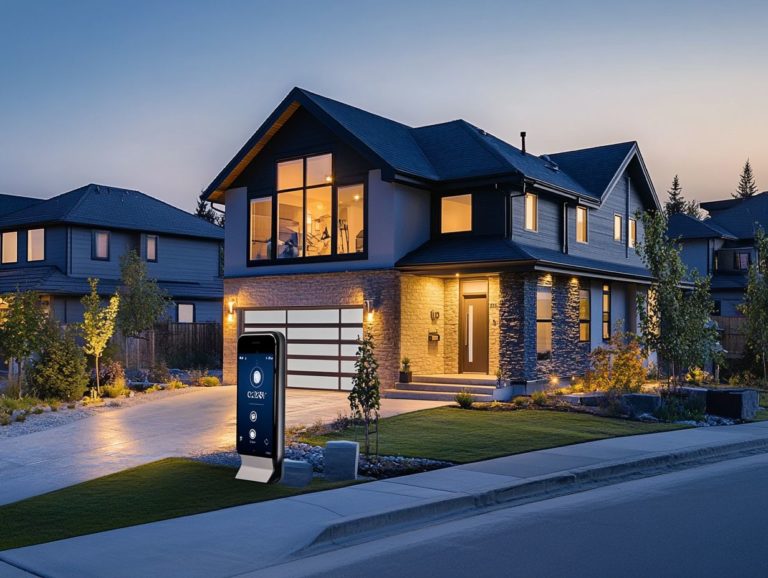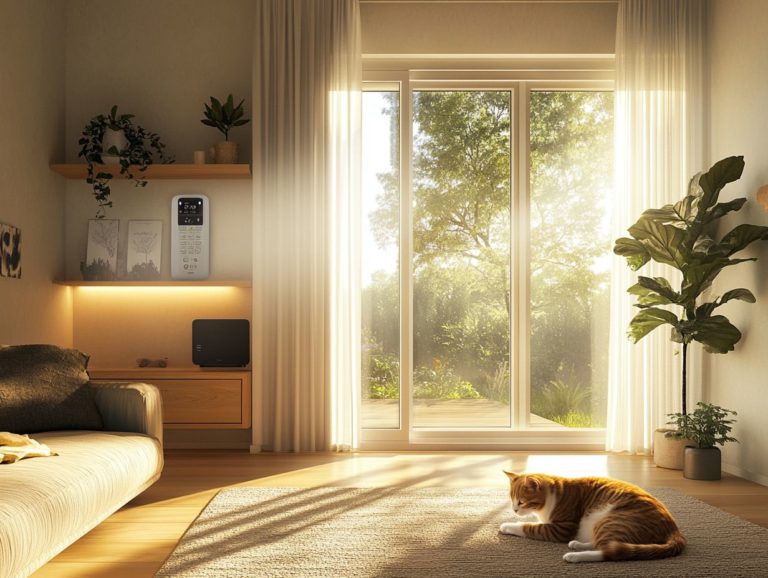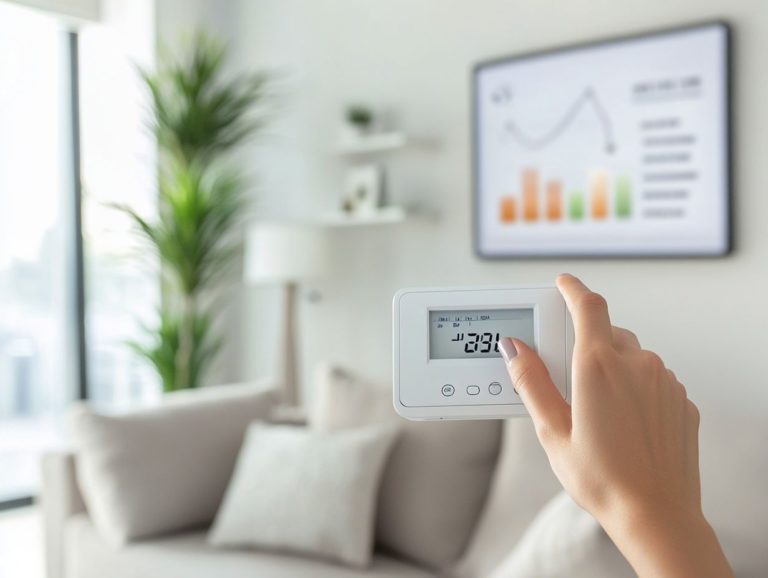How to Check Your Home’s Energy Efficiency?
Energy efficiency is more than a trendy term; it s a key part of your home s comfort, your finances, and the well-being of our planet.
By understanding your home s energy efficiency, you can save significantly on energy bills while also minimizing your environmental footprint.
This guide empowers you to assess your home s energy efficiency. It covers essential factors to consider, introduces valuable tools like energy audits and monitoring devices, and provides insights on effective upgrades and long-term solutions.
You ll discover how even simple changes can make a big impact!
Contents
- Key Takeaways:
- The Importance of Energy Efficiency
- Assessing Your Home’s Energy Efficiency
- Tools and Techniques for Measuring Energy Efficiency
- Improving Your Home’s Energy Efficiency
- Benefits of an Energy Efficient Home
- Frequently Asked Questions
- What is energy efficiency and why is it important for my home?
- How can I check my home’s energy efficiency?
- What is a professional energy audit and how does it work?
- Can I do a self-assessment for my home’s energy efficiency?
- Are there any tools or resources available to help me check my home’s energy efficiency?
- How often should I check my home’s energy efficiency?
Key Takeaways:
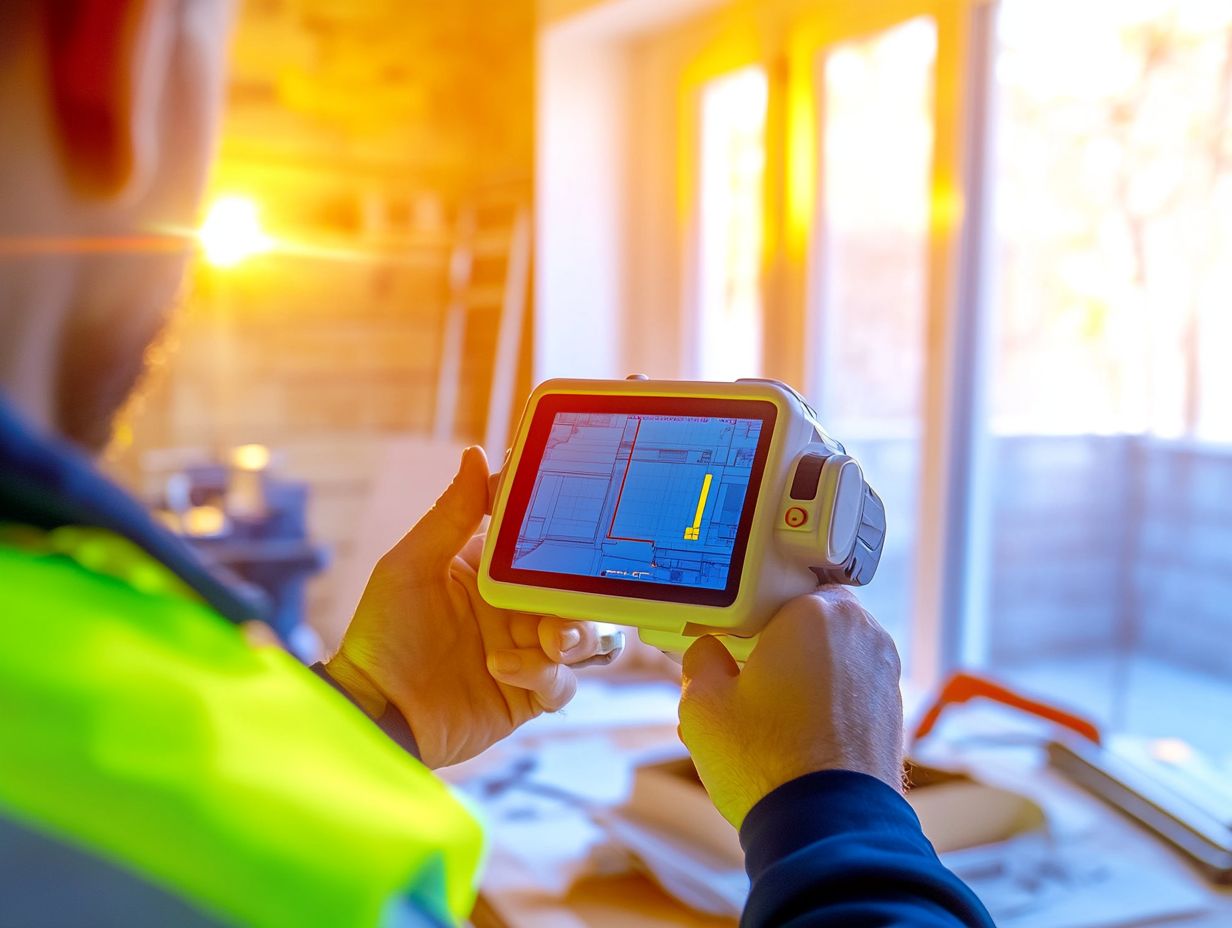
Check your home’s energy efficiency regularly. It helps you save money and protect the planet!
Tools such as home energy audits and energy monitoring devices help identify areas for improvement. For more detailed guidance, check out how to evaluate your home’s energy needs. Simple changes and upgrades improve your home’s energy efficiency and overall comfort.
The Importance of Energy Efficiency
Energy efficiency is a key part of modern living, especially for homeowners who want to reduce energy bills, enhance comfort, and lessen their ecological footprint.
By embracing energy-efficient solutions like detailed checks of your home’s energy use, you can learn how to optimize your home’s energy performance and contribute to broader energy conservation efforts.
Implementing energy-efficient practices can lead to impressive savings that you’ll notice on your bills while reducing your carbon footprint.
In areas like Pennsylvania, knowing local regulations and exploring rebate opportunities can amplify the impact of these initiatives.
Why it Matters for Your Home
Understanding energy efficiency opens up a world of benefits, including better comfort, lower energy bills, and increased safety.
Integrating energy-saving products and conducting thorough home assessments allows you to tackle comfort issues stemming from poor insulation and inefficient energy use.
A comprehensive evaluation not only reveals areas needing attention but also helps identify energy leaks that are draining your resources.
Incorporating energy-efficient items like LED lighting and smart thermostats leads to significant savings over time. Regular safety checks ensure that your heating and cooling systems are performing at their best.
Ultimately, improving insulation goes beyond saving money; it transforms your living space into a more enjoyable and secure environment.
Assessing Your Home’s Energy Efficiency
Assessing your home’s energy efficiency is the essential first step in optimizing energy use and cutting costs, and learning how to conduct a DIY energy audit can help you get started.
Engaging in a thorough energy audit with an experienced expert uncovers inefficiencies in your mechanical systems, insulation, and air leakage areas.
This process highlights potential improvements and enables you to take actionable steps.
Typically, the audit begins with a homeowner interview, followed by evaluations, including a blower door test to assess your home’s thermal performance.
A comprehensive evaluation culminates in an energy report with specific recommendations tailored to your unique conditions.
Key Factors to Consider
When assessing your home’s energy efficiency, consider factors like air leak testing, insulation standards, and the efficiency of your heating and cooling equipment. To learn more about improving these aspects, explore how to make your home more energy efficient. These elements determine your energy usage and overall performance.
Inadequate insulation can lead to significant heat loss during colder months, increasing heating costs and straining your energy resources. Air leaks around windows and doors create drafts that force your systems to work harder, inflating your utility bills.
Understanding the efficiency of your heating and cooling appliances is crucial; older models might need upgrades to meet modern energy standards, helping you reduce energy consumption and costs. By thoroughly evaluating these factors, you can identify areas for improvement and greatly enhance your home’s energy efficiency.
Start your energy audit this week to see real savings!
Tools and Techniques for Measuring Energy Efficiency
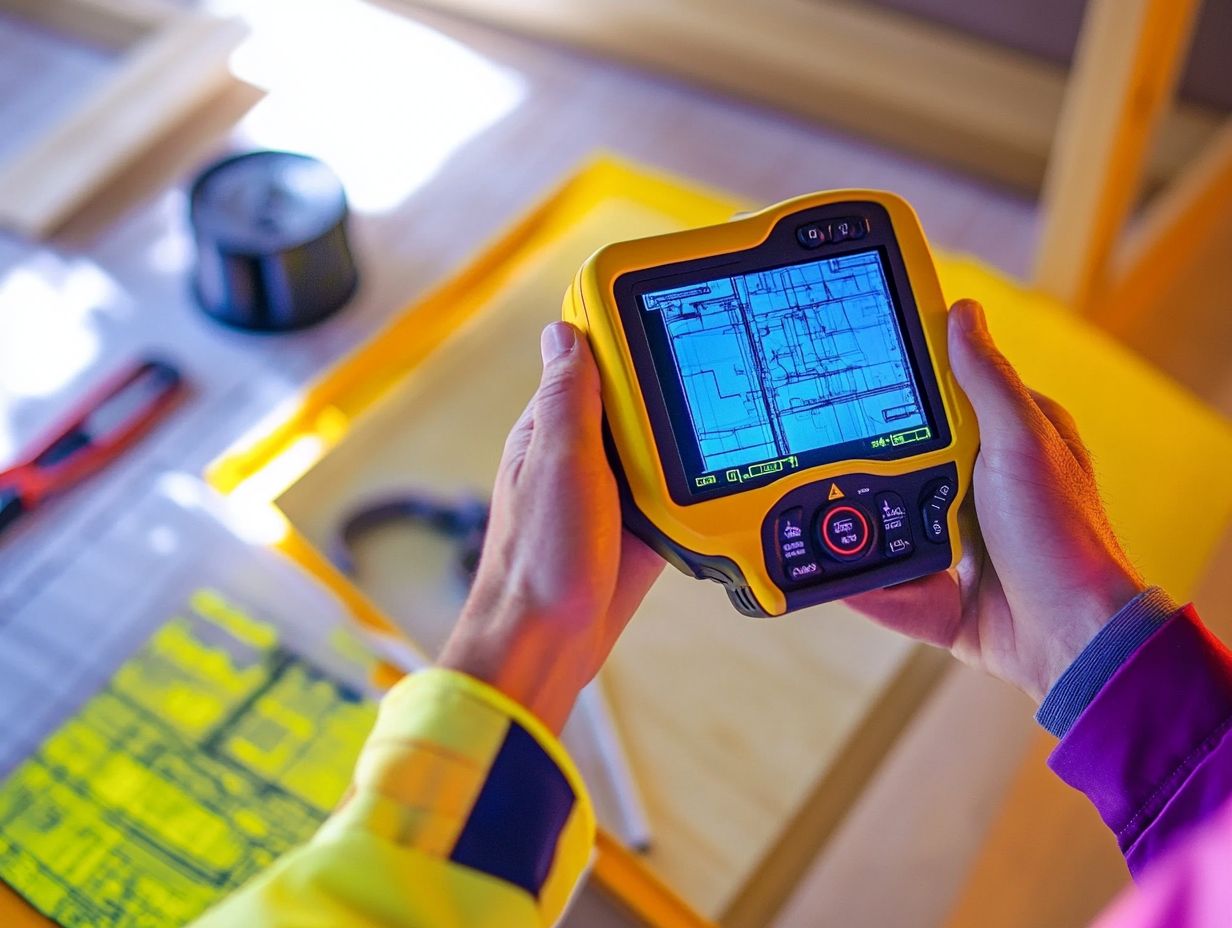
You have various tools and techniques for measuring energy efficiency within your home. Consider options like home energy audits, energy monitoring devices, and the blower door test, which checks air leakage in your home.
Conducting a DIY energy test can offer valuable insights into your home’s performance, highlighting areas that could improve, especially when learning how to create an energy-efficient home.
Utilizing a government-issued checklist can expertly guide you through the audit process, ensuring no critical aspects are overlooked.
Home Energy Audits
A home energy audit by a certified energy auditor is crucial for identifying inefficiencies and potential enhancements in your home’s energy performance. This thorough check reveals where energy is wasted and highlights opportunities for cost savings.
During the audit, the energy auditor inspects components like insulation, heating systems, and windows, using specialized tools to gather accurate data. The auditor uses an audit checklist to ensure thoroughness.
After the assessment, you receive an energy report with tailored recommendations to boost efficiency and comfort. These insights can significantly reduce your energy bills, lower your carbon footprint, and enhance your home value.
Getting an energy audit is one of the smartest moves you can make for your home!
Energy Monitoring Devices
Energy monitoring devices give you real-time insights into your energy usage, enabling informed decisions about home improvements.
By tracking consumption patterns and identifying waste, these tools help you make better choices.
For instance, you can easily find out which appliances consume the most energy and adjust your usage or upgrade to energy-efficient models, reducing your carbon footprint.
The integration of smart technology provides remote access and automation capabilities, helping lower your utility bills and contributing to broader energy efficiency efforts.
Improving Your Home’s Energy Efficiency
Enhancing your home’s energy efficiency is achievable through simple adjustments or more substantial upgrades.
These efforts not only improve your comfort but also significantly lower energy costs.
Simple Changes and Upgrades
You can transform your home s energy efficiency with simple changes, such as sealing air drafts, upgrading to energy-efficient items, and optimizing appliance usage.
By addressing these often-overlooked areas, you can enjoy substantial savings on energy bills while contributing to a more sustainable environment.
Start with a thorough inspection of your windows and doors. Fill any gaps with weather stripping or caulk to keep heated or cooled air where it belongs.
Next, consider swapping traditional light bulbs for LED options, which consume significantly less energy and last much longer. Regular cleaning and maintenance of appliances such as refrigerators and HVAC systems can enhance their performance and further reduce energy costs.
These straightforward steps create a layered approach to energy conservation that leads to noticeable results. Ready to get started?
Long-Term Solutions
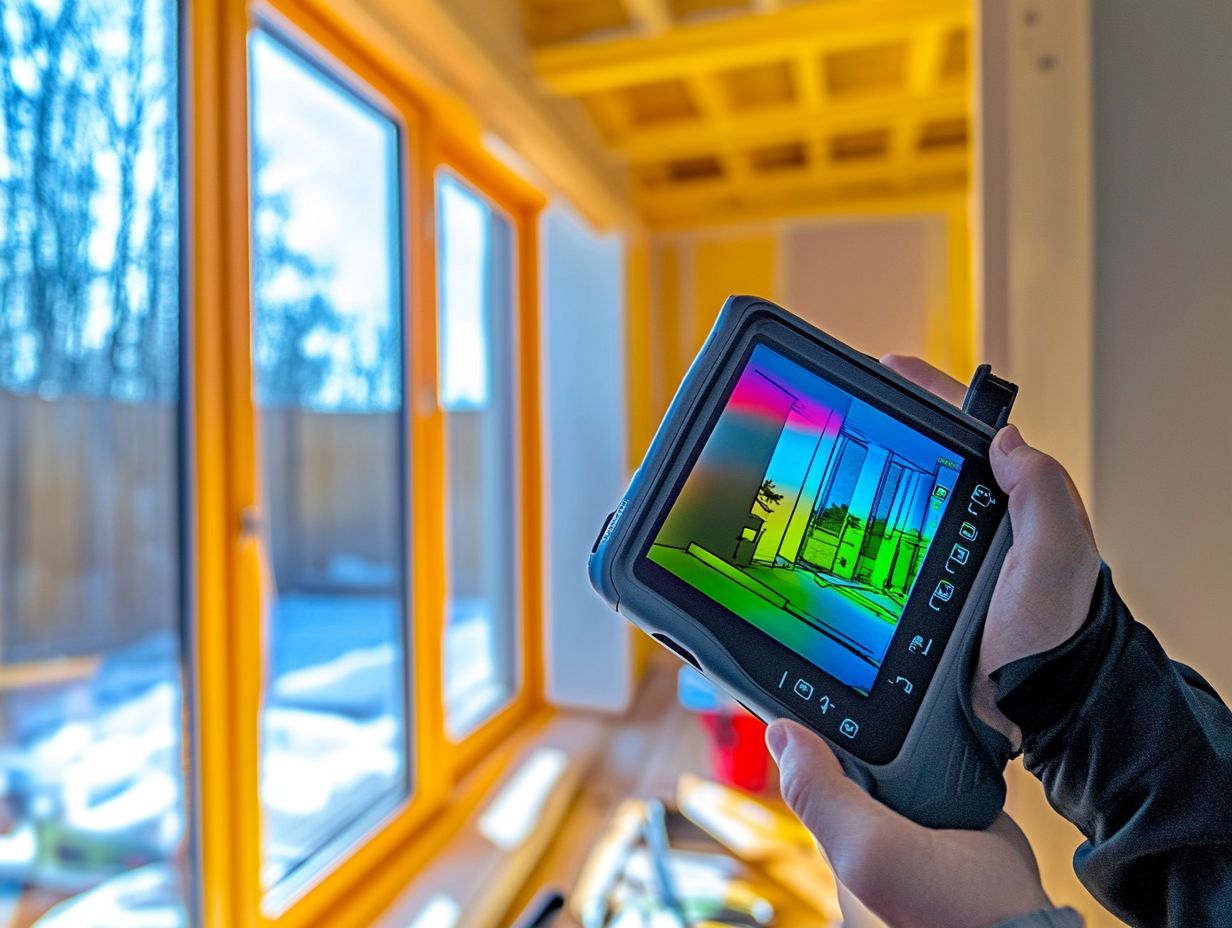
For lasting improvements in energy efficiency, it’s essential for you to invest in long-term solutions. Upgrade your insulation standards and optimize your heating and cooling systems.
These infrastructure changes lead to a significant reduction in your utility bills and enhance the overall value of your property. Unlike cosmetic changes that may offer only a temporary aesthetic boost, these foundational upgrades promote sustainability and ensure resilience against fluctuating energy costs.
By prioritizing advanced technologies like energy-efficient windows or integrating renewable energy, you unlock substantial financial benefits over time. Act now to make your home more energy-efficient!
Organizations developing sustainable energy strategies can leverage these systemic improvements to align with broader environmental goals, paving the way for a more sustainable future.
Benefits of an Energy Efficient Home
The advantages of an energy-efficient home reach far beyond just saving on your energy bills. They significantly impact the environment and foster a culture of energy conservation on a broader scale.
Savings on Energy Bills
One of the most immediate benefits of an energy-efficient home is the substantial savings on energy bills. By upgrading your home with things like programmable thermostats, sealing leaks, and improving insulation, you will notice a reduction in your monthly expenses.
These enhancements trim your bills and cultivate a more comfortable living space. Plus, many governments and local utilities offer enticing rebates and incentives aimed at encouraging energy-efficient practices.
This financial support can significantly offset the initial investment needed for these improvements. Start your journey toward energy efficiency today!
Environmental Impact
Energy-efficient homes enhance your living space and contribute to the environment by reducing residential energy consumption and lowering your overall carbon footprint.
By adopting energy-saving technologies and practices, you play a crucial role in combating climate change, conserving natural resources, and championing sustainable living. These thoughtful choices lessen the demand for fossil fuels and improve air quality by minimizing emissions linked to energy production.
Communities benefit from decreased energy costs, allowing for reinvestment in additional environmental initiatives. As more households adopt these eco-friendly strategies, the cumulative impact on energy conservation becomes significant.
This collective effort fosters a healthier planet and inspires others to join the movement toward sustainability.
Frequently Asked Questions
What is energy efficiency and why is it important for my home?
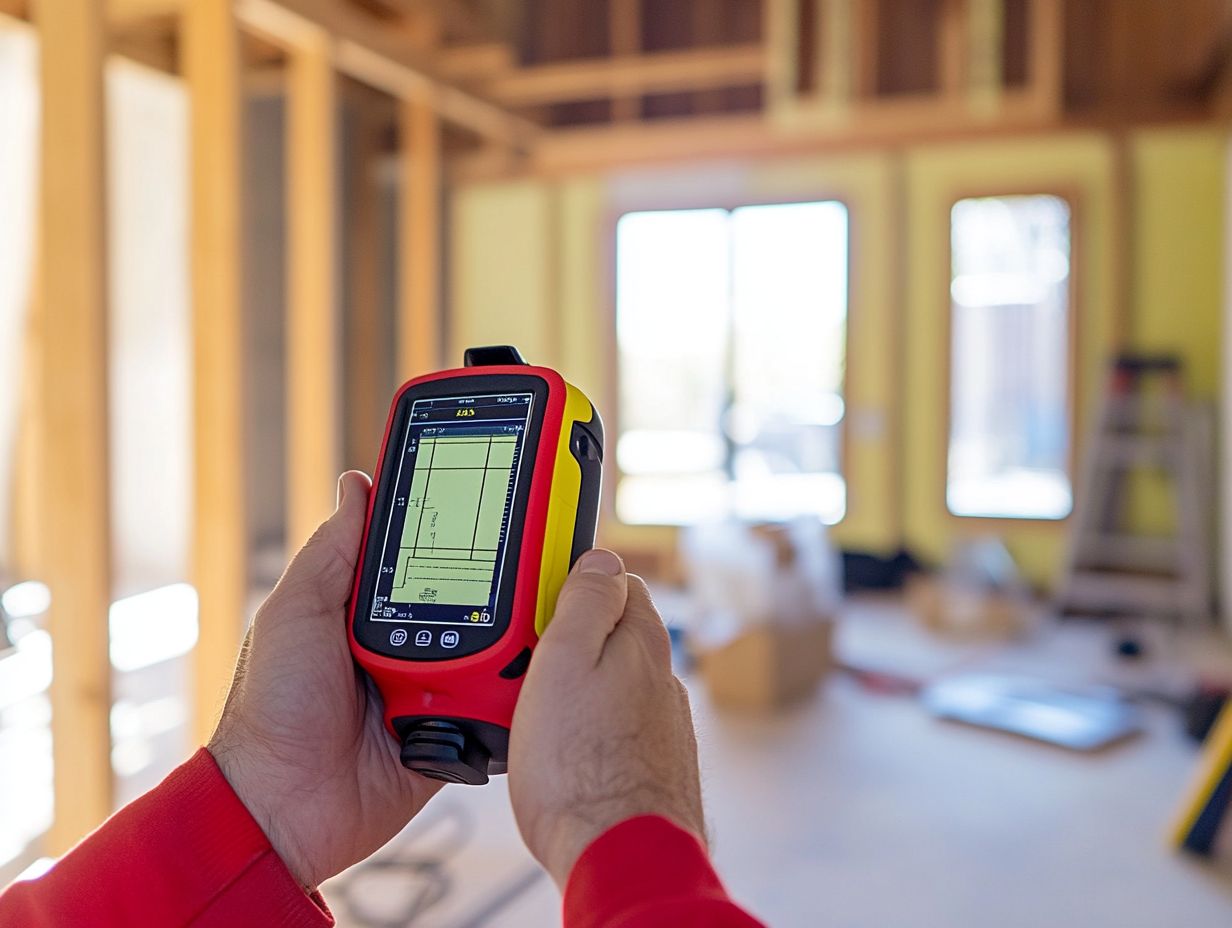
Energy efficiency refers to the amount of energy used to perform certain tasks in your home. It is important because it helps reduce your energy bills, carbon footprint, and overall impact on the environment.
How can I check my home’s energy efficiency?
There are several ways to check your home’s energy efficiency. You can conduct a professional energy audit, use an online home energy calculator, or perform a self-assessment by inspecting your home for energy-efficient features and habits.
What is a professional energy audit and how does it work?
A professional energy audit is a comprehensive assessment of your home’s energy usage conducted by a certified energy auditor. It involves a thorough inspection of your home’s insulation, appliances, lighting, and more. The auditor provides a detailed report with recommendations for improving your home’s energy efficiency.
Can I do a self-assessment for my home’s energy efficiency?
Yes, you can do a self-assessment for your home’s energy efficiency.
Start by checking for air leaks and making sure your insulation is good enough. Additionally, consider learning how to measure your home’s water efficiency and replace old appliances with energy-efficient models.
Change your daily habits too. Turn off lights and unplug electronics when not in use to enhance efficiency.
Are there any tools or resources available to help me check my home’s energy efficiency?
Many tools and resources can help you check your home’s energy efficiency.
You can use online home energy calculators, consult with your energy provider, or check with your local government for how to improve your home’s energy efficiency programs and incentives.
How often should I check my home’s energy efficiency?
Check your home’s energy efficiency at least once a year to keep it running smoothly.
If you notice a spike in your energy bills or changes in usage, investigate sooner. Don t wait saving energy saves money!

